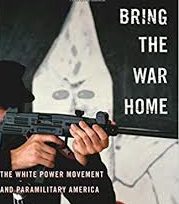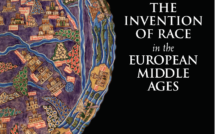
This is part of our Campus Spotlight on American University.
Course Description
This course examines instances and theories of national, ideological, ethnic, religious, and political extremism and their relationship to education. Course participants will develop a working definition of extremism and then analyze how state authorities, rebel movements, extremist associations, and ethnic and religious organizations mobilize youth populations, shape public narratives, and use, manipulate, or abuse ideologies that lay claim to collective identities during the development and transformation of extremist movements. The course pays particular attention to the ways that educational systems have worked to foment and prevent extremism in comparative, historical, and cross-national contexts, as well as to efforts to combat extremism outside of formal educational systems. In 2018, the course has a special focus on extremism and hate incidents in US education. Additional case study material includes far right youth subculture in contemporary Germany; eco-terrorism and left-wing extremism; the Prevent program in the UK; and education and religious extremism. Student learning outcomes include the ability to assess and differentiate various dimensions of extremism and radicalization; critically evaluate primary drivers of radicalization and extremism across varied ideological and global domains; and assess educational interventions in formal and informal contexts as they relate to efforts to counter and prevent violent extremism
Readings
The students in this class read several full-length books as well as excerpts, book chapters, and articles from authors who work on far right, far left, and Islamist extremism and terrorism. We also read a number of case studies related to interventions. Readings include Kathleen Belew’s 2018 book Bring the War Home: The White Power Movement and Paramilitary America; Cynthia Miller-Idriss’ 2018 book The Extreme gone Mainstream, Diego Gambetta and Steffen Hertog’s 2017 book Engineers of Jihad; Cas Sunstein’s 2009 book Going to Extremes; and the Teachers’ Handbook for Addressing Extremism: Ages 11-14 years, authored by Alison Jamieson and Jane Flint. Additional readings include excerpts from Clark McCauley and Sophia Moskalenko’s Friction: How Conflict Radicalizes Them and Us, Christian Picciolini’s White American Youth, and Arno Michaelis and Pardeep Singh Kaleka’s The Gift of Our Wounds, as well as shorter essays and articles by Terri Givens, Jade Olsen, Steven Windisch, Gina Scott Ligon, Jeffrey Bale, Unni Wikan, Thomas Hegghammer, Joel Busher, and more.
Course Topics
The course is structured in three units: theories and frameworks; radicalization, extremism and terrorism, and education, de-radicalization, and prevention.
The first three weeks focus on theories and frameworks:
Week 1: What is extremism? What is radicalization
Week 2: Radicalization across ideologies
Week 3: Extremism, Terrorism, and Radicalization
The second block of four weeks focuses on radicalization, extremism and terrorism:
Week 4: The Far Right in the United States
Week 5: The Far Right in Europe
Week 6: The Far Left: Eco-terrorism and Radical Environmentalism
Week 7: Religious Extremism and Islamist Terrorism
In the final seven weeks, we explore a variety of issues related to education, de-radicalization and prevention:
Week 8: Schooling and Policy Interventions (part I: surveillance and policing)
Week 9: Schooling and Policy Interventions (part II: broadening domains)
Week 10: The Prevent/UK Model
Week 11: Masculinities and Extremism
Week 12: Schools and Violence
Week 13: Community Education/Formers
Week 14: Teaching Hard History
Course Requirements
In addition to two short reflective essays and two take-home exams, students engage in a
semester-long team intervention project. In groups of 2-4 students, teams design an intervention on prevention and deradicalization of extremism and terrorism, focused on topics such as a viral video social media campaign; a classroom curriculum, a teacher training; a religious group or summer camp intervention, or a community-based p




